Q&A: Charter advocates bid for first L.A. school board majority
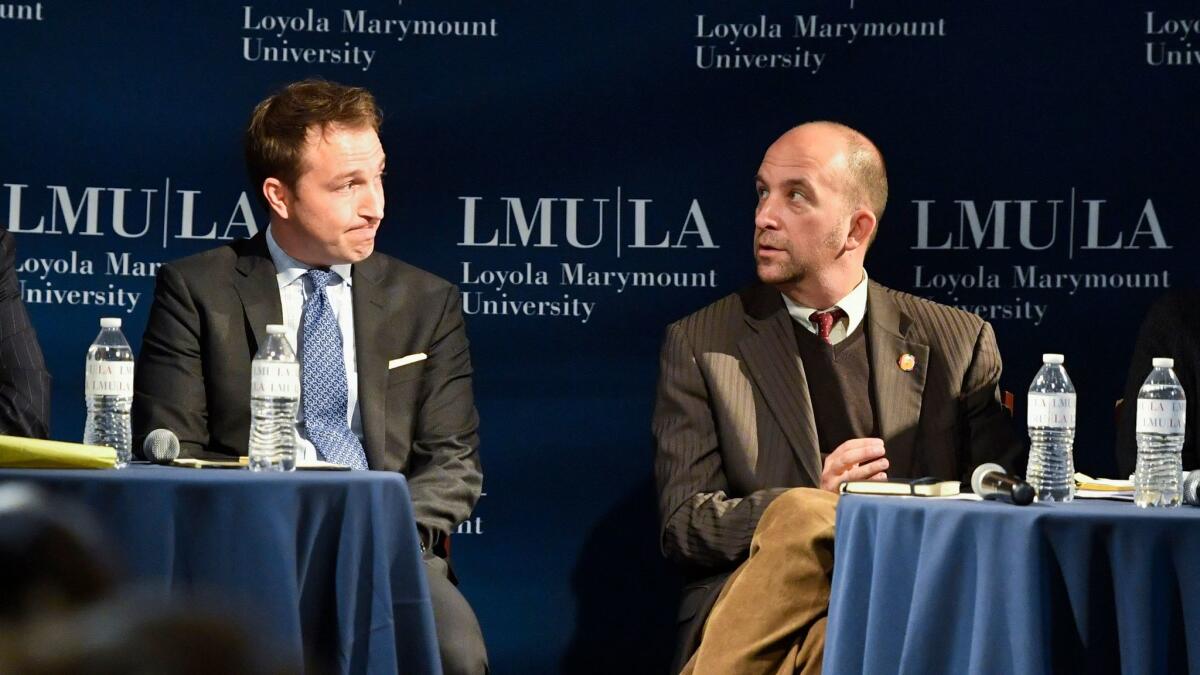
A barrage of campaign mailers, online videos and TV ads signals that Tuesday’s Los Angeles school board elections matter to people. If they win the two runoff races, candidates funded by charter school advocates would claim their first-ever majority of seats on the seven-member board of the nation’s second-largest school system.
This possibility has fueled record spending, more of it by pro-charter groups, but a lot by unions as well. Unions, especially the teachers union, want to limit the influence of charter backers on a board that leans pro-union.
Why would it matter so much to have a pro-charter majority?
L.A. Unified is at a juncture where the continued growth of charter schools could fundamentally change the delivery of education in Southern California. Charter supporters say these schools offer high-quality choices to parents whose neighborhood campuses are plagued by low student achievement and other problems. Charters have proved popular with many parents and some have waiting lists.
Charter critics question the claims of success and assert that the loss of students (and the funding that comes with them) imperils the ability of the district to offer full services to parents of children in traditional schools, including those with moderate to severe disabilities.
The new board terms also will be extra long — about five and a half years — because the schedule for municipal elections is about to change.
Who are the candidates in District 4, which stretches from the Westside to the west San Fernando Valley?
School board President Steve Zimmer, 47, a two-term incumbent who is backed by unions, and Nick Melvoin, 31, who is backed by those who want more charters. Melvoin spent two years as an L.A. Unified teacher before going to law school and worked recently for groups that promote charter school growth and that seek to limit the influence of teachers unions.
Who are the candidates in District 6, which covers much of the east San Fernando Valley?
Imelda Padilla, 29, is a community activist and labor organizer backed by unions. Kelly Gonez, 28, is a middle school science teacher at a charter school and is supported by charter proponents. (Incumbent Monica Ratliff did not seek reelection.)
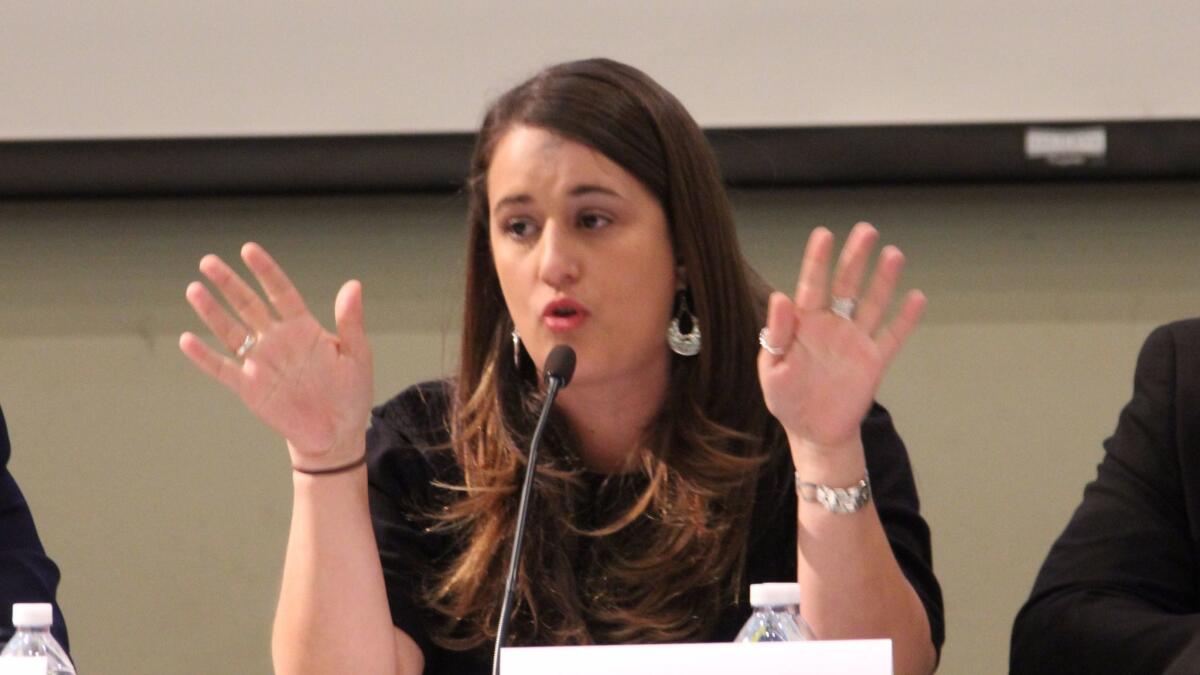
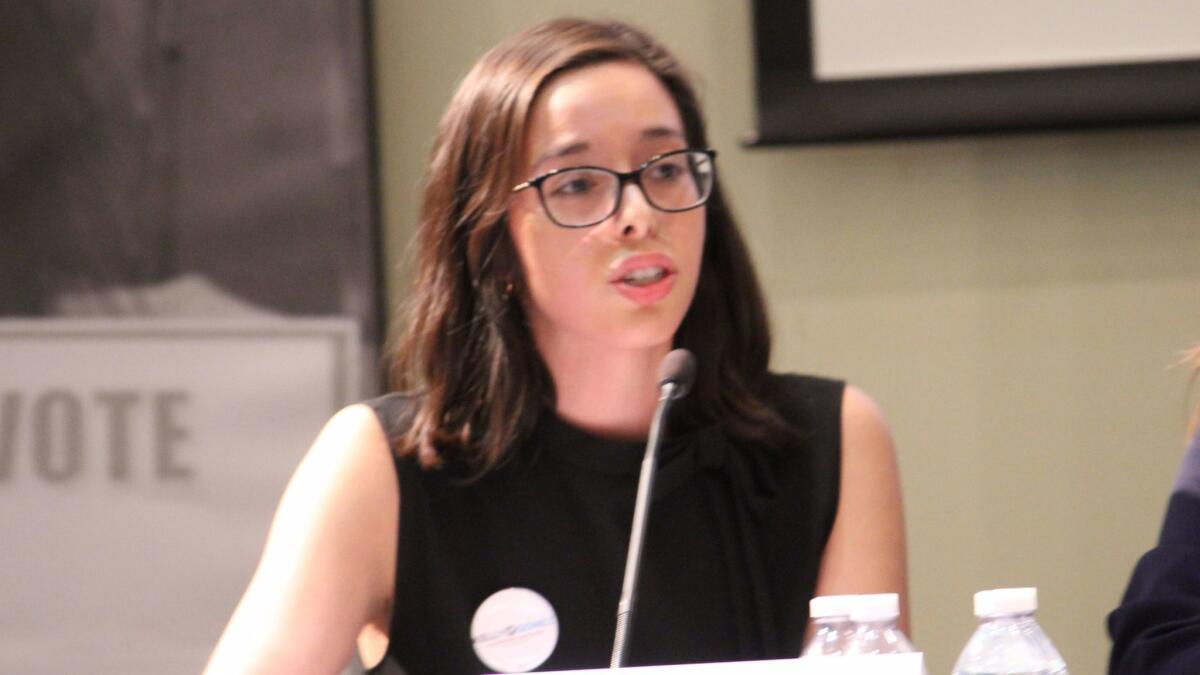
What is a charter school?
Charters are public schools that are exempt from some rules that govern traditional campuses. In L.A., most charters are run by nonprofits and are non-union.
What would it mean to have a pro-charter majority?
The school board would most likely put up less resistance to new charter schools and could make it easier for existing charters to have their five-year operating agreements renewed. Charters also could get increased access to district-owned classrooms and to school construction money controlled by L.A. Unified.
A pro-charter board still would have to confront difficult budget issues, which the growth of charters would exacerbate. In the event of budget cuts or layoffs, a realistic possibility, the new board would have to win the trust of employee groups to avoid labor unrest that could accompany budget cuts.
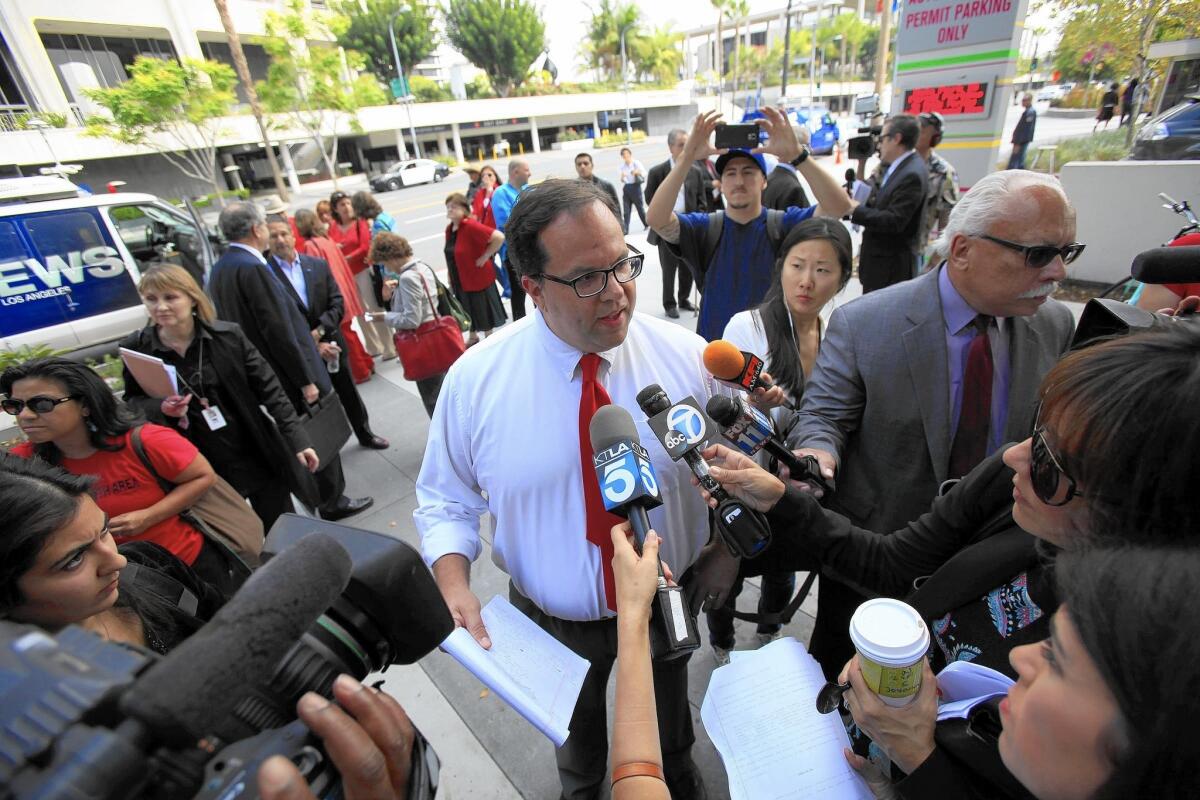
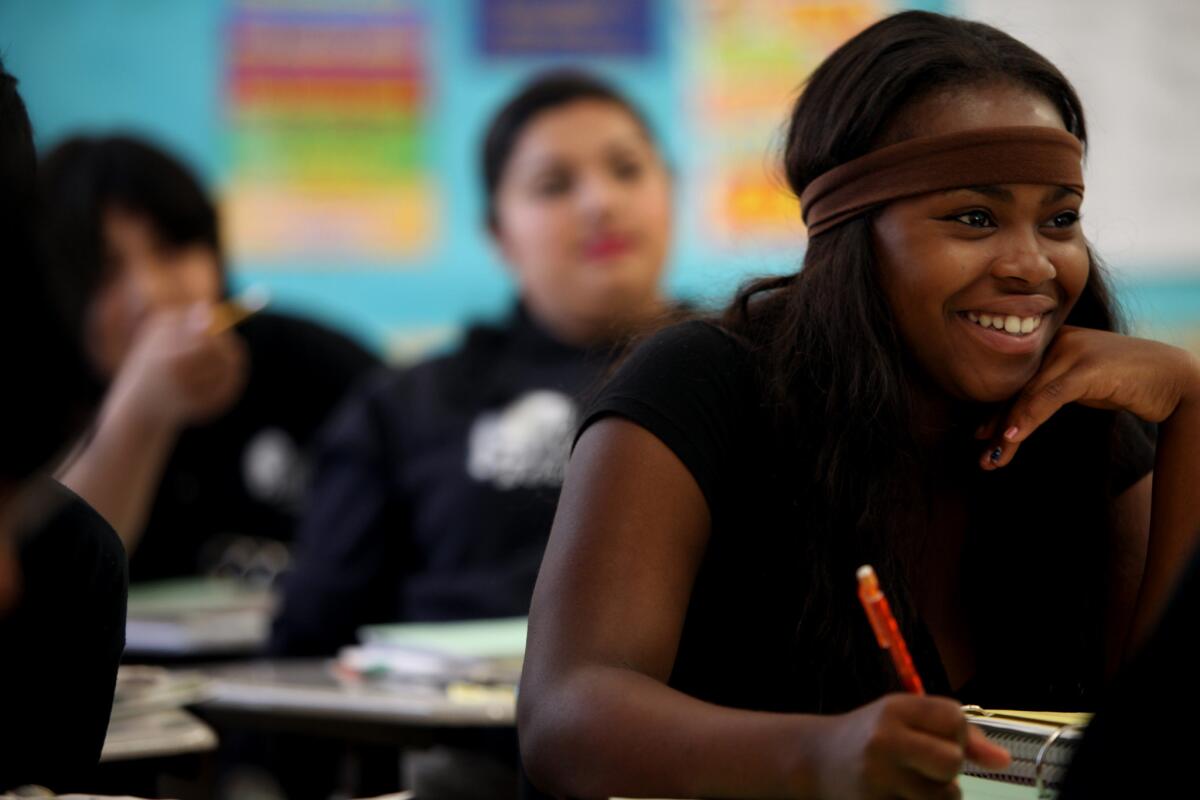
What would it mean if the union-backed candidates prevail?
For better or worse, a victory by pro-labor candidates could result in more pressure on the seven-member board to provide larger raises to members of unions that helped win the election.
In addition, a board majority probably would try to limit or freeze the growth of charter schools, which could be a violation of state law. If the board could not act locally, it probably would lobby for changes to state law.
Backers of Zimmer and Padilla predict that a period of calm and stability — following the stormy superintendency of
On the other hand, victory by the union-backed candidates could lead to a delay in confronting looming district financial problems, such as the cost of unfunded, lifetime health benefits for long-term employees.
What would it mean if there is a split, with one candidate each winning from the charter-backed side and the union-supported side?
It depends on the split.
In the Valley race, both candidates have campaigned on remarkably similar platforms, emphasizing their support for high-quality charters, teachers and even unions. It remains to be seen how independent Gonez or Padilla would prove when leaned on by their financial backers.
Replacing Zimmer with Melvoin, however, would represent a sharp departure regardless of who wins the other seat. For one thing, Melvoin says he would push to limit teacher tenure and seniority rights, even though some of those job protections are enshrined in state law. Melvoin says he would not limit charter growth, but would instead rely on the market forces of parent choice, while also doing his best to make district schools a viable option.
Over the last eight years, Zimmer has become a leader on the current board, sometimes seeming like a shadow superintendent in his close collaboration with current Supt. Michelle King and her predecessor, Ramon C. Cortines. With them, he has pushed hard to build on popular options for parents within the district, such as magnet schools and programs that achieve full foreign-language fluency.
How much money is being spent by the outside campaigns for each side?
Allies of charter schools had spent at least $5.59 million for Melvoin through Monday; unions had spent at least $2.35 million for Zimmer.
Charter allies had spent about $3.24 million for Gonez and unions about $2.39 million for Padilla.
How long has this charter vs. union dynamic existed?
Before 1999, school board elections were mostly an internal affair, with different factions within the district battling it out. Sometimes the teachers union and other unions were not on the same side. Then an alliance of wealthy philanthropists and some civic leaders, notably Mayor Richard Riordan, began to face off against the teachers union. A later mayor,
In the last three elections, money coming in against union-backed candidates has consolidated behind pro-charter school organizations. Meanwhile, the administrators’ union often has endorsed the same candidates as the teachers. Service Employees International, the main union for non-teaching employees, has typically endorsed the incumbents from either camp.
Support hasn’t always been so split though. In District 4, Steve Zimmer originally had the backing of the teachers union and the philanthropists. In District 6, four years ago, the unions and charter forces tacitly or explicitly backed Antonio Sanchez. In spite of that, he lost to the minimally funded Ratliff. Four years before that, both the union and major donors backed Nury Martinez, who won. Current board member Richard Vladovic maintained both union and charter backing two years ago.

What can we learn from the endorsements?
There is a major split in the Democratic Party over the direction of education reform. Melvoin is endorsed by former Education Secretary
Zimmer is backed by Sen. Bernie Sanders of Vermont, Rep.
What kind of voter turnout is expected?
Low, so it’s a question of whose backers show up to cast their ballots.
Sign up for Essential California
The most important California stories and recommendations in your inbox every morning.
You may occasionally receive promotional content from the Los Angeles Times.








